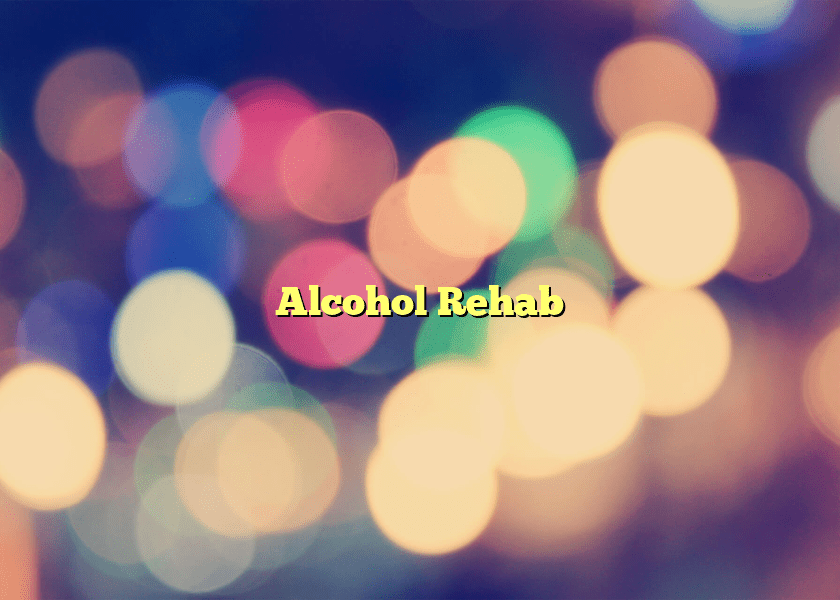Alcohol Rehab
Alcohol abuse refers to the chronic consumption and craving for alcohol, so that it interferes in the normal social and economic functioning of the person. Alcohol Rehab tries to treat and bring back to normal victims of this condition.
The alcoholic is unable to stop his craving for drinking. He fails to complete his obligations at work or home. He undertakes activities that are dangerous in his condition, including drunk driving. He may encounter legal problems, and cannot and will not stop drinking despite personal, official and medical problems.
Alcoholism can be fatal. It affects the addict’s health in many ways. Fetal Alcohol Syndrome (FAS) is an irreversible condition associated with excessive consumption of alcohol by pregnant women. It leads to physical and mental deficiencies and even fetal death. Another killer condition is Cirrhosis, caused by alcoholism and leading to liver failure and death.
Alcohol Rehab must be done carefully by trained medical professionals. It involves evaluation and management of acute alcohol withdrawal, treatment of nutritional deficiencies, detoxification and the maintenance of abstinence.
Medical treatment of alcoholism involves initially the management of alcohol withdrawal. Treatment includes the use of thiamine and folate fed intravenously to prevent Wernicke Kosakoff syndrome (an eye disorder). Seizures must be treated with Benzodiazepines.
After medical management is over, a psychosocial Rehabilitation program must be undertaken. This includes educating the entire family of the patient, individual or group therapy, or even a spiritual ‘12 steps to sobriety’ program given by Alcoholics Anonymous.
There are some important points to remember. Supervised withdrawal is the first step and must not be hurried. Hurry can be fatal. A medically supervised detox program is the first step. Next step is to choose a Rehab center. Find a treatment center that deals not only with addiction but the holistic picture of psychosocial and legal problems.
The program must involve a major amount of therapy–counseling and occupational. Therapy or counseling is critical for alcohol treatment. Patients learn to resist alcohol use, replace drug-using activities with constructive and rewarding activities. They are asked to shun alcohol abusing company. They also relearn normal family and social living patterns.
Treatment involves continuous monitoring for alcohol use. Some people may require medication for their treatment, and this too must be monitored. Some may be suffering from mental problems that need special treatment. The treatment duration may vary with each case, but 3 months is a safe period for most treatment.
The main point is that there is no singular Rehab formula. The success of treatment depends on finding the right program and methods. Effective treatment must address the patient’s drug use and also related medical, social, psychological, vocational and legal problems.
The treatment may be long-term, involving periods of relapse. The crucial point is not to give up hope, but work patiently till you reach complete abstinence.
